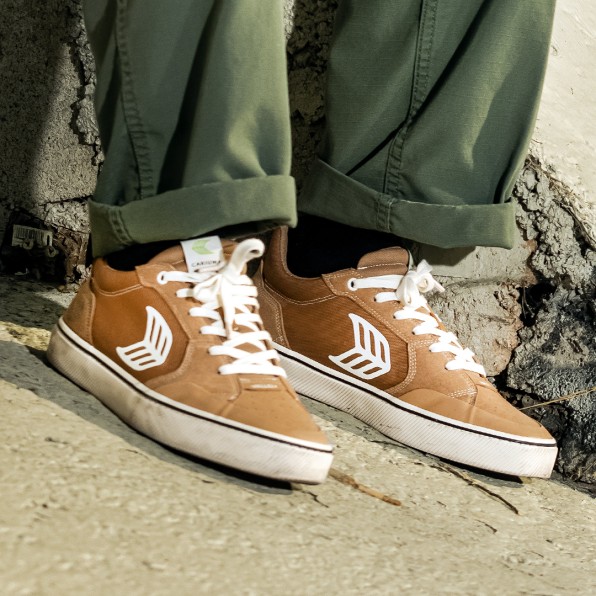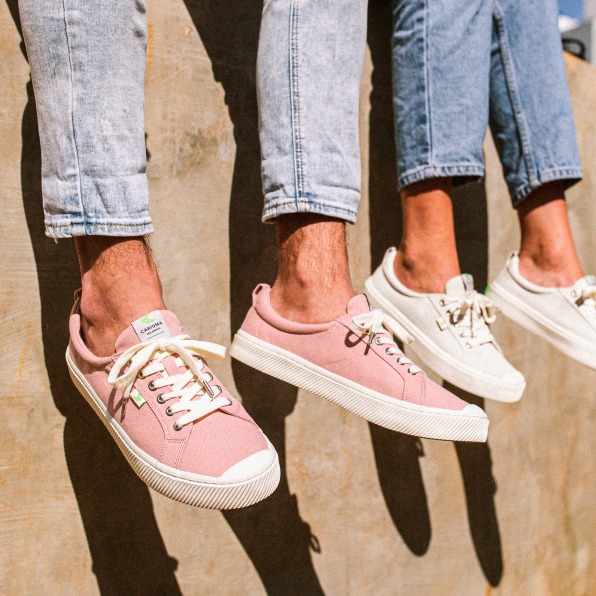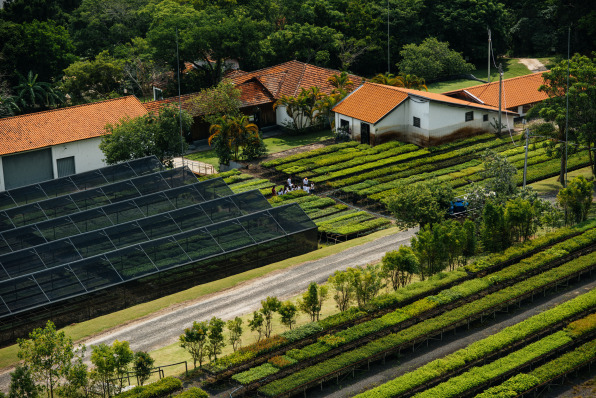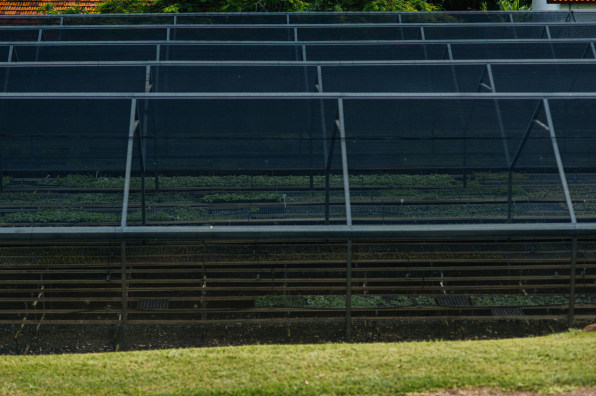

Inside this sneaker startup's efforts to bring biodiversity back to Br
source link: https://www.fastcompany.com/90770575/inside-this-sneaker-startups-efforts-to-bring-biodiversity-back-to-brazil
Go to the source link to view the article. You can view the picture content, updated content and better typesetting reading experience. If the link is broken, please click the button below to view the snapshot at that time.

Inside this sneaker startup’s efforts to bring biodiversity back to Brazil
Cariuma plants two trees for every pair of sneakers it sells. But it doesn’t stop there.
A few fashion brands have recently hired chief science officers who are tasked with developing cutting-edge new materials. Sneaker startup Cariuma has one devoted to the rain forest.
When Cariuma launched four years ago, it vowed to plant a pair of trees for every pair of shoes sold. But rather than simply donating money to environmental groups—which is the norm at many eco-friendly brands—Cariuma has a C-suite executive who is deeply involved in its reforestation projects and visits weekly with partners on the ground.

Cariuma, which has headquarters in Brazil, Los Angeles, and Singapore, was founded in Rio de Janeiro by David Python and Fernando Porto. The pair met while working at Arezzo&Co, a large Latin American shoe conglomerate, and had both taken time off to attend Harvard Business School. They bonded over their shared love of skateboarding, and in 2016 they decided to launch their own business with the goal of making skater-inspired shoes.
“We had a good look at business as usual in the shoe industry, and we didn’t like what we saw,” says Python, who is Cariuma’s CEO. “Growing up in Brazil, we saw how the shoe business is destroying our rain forests. And as a person of Indigenous descent, I was aware of how this was destroying Indigenous communities.”

In many cases, brands simply write checks to organizations overseas involved in reforestation projects, but Cariuma launched with the tree-planting commitment. As Brazilians, Python and Porto believed they could take an active role in supporting environmental nonprofits in their home country.
At launch, they partnered with SOS Mata Atlântica, which protects Brazil’s Atlantic Forests. In 2020, they began working with Centro de Pesquisas Ambientais do Nordeste, known as CEPAN. And this year, they’ve added the Black Jaguar Foundation, which, like CEPAN, works to restore biodiversity to Brazil’s ecosystems.

“Now we donate money to them based on how many shoes we expect to sell in the next six months,” Python says. “This means they know how much money they have to work with and can begin forecasting what work they’ll do in the following year.”

“We could work with partners from a distance,” she says. “But it’s not just about getting updates, it’s about forging a connection and seeing how these projects impact the local communities. It’s not about correcting what they do, it’s about seeing how we can help them and add to what they do.”
Two years ago, Cariuma began working closely with CEPAN, which restores Brazil’s northeastern ecosystems. Joaquim Freitas, CEPAN’s planting project coordinator, says Cariuma’s donations—which reach tens of thousands of dollars every six months—have sponsored a seed bank in partnership with Indigenous people from the Guaraní and Tupiniquim tribes.
“It’s important to note that reforestation is not just about planting trees,” Freitas tells me. “It’s about bringing back biodiversity and supporting the local communities that are affected by the deforestation.”
To that end, Freitas works with 67 seed collectors in Aracruz, in the central coast of Brazil, where there is still a lot of biodiversity. The collectors identify flowers and fruits, then remove the seeds and keep them in a facility that CEPAN has created in the region, where they can be stored for up to a year.
“We make an effort to work mostly with women, who are often vulnerable because they don’t have a source of income,” Freitas says. “These communities have ancestral knowledge about seeds, so they can identify and collect 30 specific seeds species that are crucial to the survival of these ecosystems. ”
CEPAN then connects with landowners, including Indigenous leaders and farmers who are eager to restore their land, since deforestation degrades their territory and makes it less valuable. Freitas and his team visit these sites and plant a mix of seeds that would have historically grown there. Over the course of the past year, these seed collectors have gathered millions of seeds. According to Freitas, only 3% of seeds will eventually grow into adult trees, so CEPAN must plant several pounds of seeds for each acre of land.
“When Cariuma says it plants two trees for each pair of shoes, this means they must pay for the collection and planting of thousands of seeds,” Freitas says, noting how valuable it is to have such a close relationship with Cariuma. For one thing, it’s easier to explain the complexities and nuances of the work.
“It takes years—sometimes centuries—to prepare the soil and begin to see trees, and we need partners who understand that,” he says. “We’ve had other organizations throw a couple of bucks our way and expect to see trees planted the next day. It doesn’t work like that.”
But Freitas is also eager to scale CEPAN’s work, and sometimes relies on Cariuma’s expertise to do this. He says he has asked the company for help developing new reporting methods and new systems for forecasting projects. Muzzi says these kinds of conversations happen often. Recently, she was speaking with a farmer about soil preparation and realized he didn’t have a tool that would allow him to be more efficient; she connected him with an organization that could help.
At Cariuma’s weekly staff meetings, Muzzi gives updates about the progress at each organization, and partners like Freitas often join to talk about what they’re seeing on the ground. Python believes this is important for employees, because it imbues their work with greater meaning. He also encourages staffers in Brazil to visit the seed collectors or tree-planting sites and invites employees from other countries to take trips to Brazil to see the work firsthand.
But he also believes it keeps him and Porto accountable to their original mission—something that’s easy to forget when you’re in the throes of growing a business. “We don’t think of the reforestation work as something we do on the side,” Python says. “We allot resources and people to the work. We’ve built it into the core of our business.”
Recommend
About Joyk
Aggregate valuable and interesting links.
Joyk means Joy of geeK